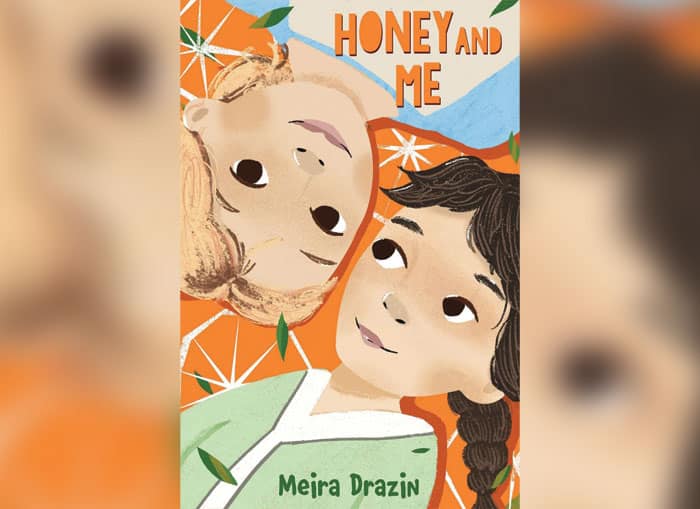
On my first day of my final year of middle school, I arrived late. I attended my best friend’s grandmother’s funeral that morning and so showed up to school as first period ended. It was just as well — first period was English, and I was a lousy English student. I had gotten a C the previous year, bored to death by endless grammar lessons. But the eighth-grade English teacher, Mr. Waldman, surprised me. He followed me out of the classroom when the bell rang and chatted with me as I figured out where my new locker was and started to fill it. He recognized my last name and told me my older sister had been one of his best students, and he had no doubt I would be the same. I blushed. I was nothing like my sister. She was very studious; I was … not. I tried to explain that to Mr. Waldman, but he laughed off my protests. His enthusiasm was infectious. Maybe English wouldn’t be so bad that year? I was taken by the way he spoke to me — a teacher treating me like an equal.
That year, we did as little grammar as was required in English (“‘Dog bit boy.’ Subject? Predicate? ‘Boy bit dog.’ Nouns? Verb? Perfect — let’s move on!”). Instead, we performed Shakespeare plays, read poetry aloud, were encouraged in our own creative writing. He played us Gordon Lightfoot’s “Black Day in July,” teaching us about social justice movements and giving us a firsthand account of the race riots in Detroit in 1967 as we analyzed the lyrics. I fell in love with English — went on to do a Ph.D. in it, in fact. But my formative relationship with Mr. Waldman was short-lived, and it ended as it began: with a funeral.
It puts its finger precisely on the pulse of adolescence, capturing the power, and also heartbreak, of close female friendships, difficult mother-daughter relationships and teachers who change our lives forever.

It was impossible for me not to think of Mr. Waldman as I read about the character of an inspirational and incredibly down-to-earth teacher in Meira Drazin’s beautiful middle-school book, “Honey and Me.” I don’t usually read middle-school books, but I’m so grateful I read this one. “Honey and Me,” winner of the Association of Jewish Libraries’ Sydney Taylor Manuscript Award, is a wonder: It puts its finger precisely on the pulse of adolescence, capturing the power, and also heartbreak, of close female friendships, difficult mother-daughter relationships and teachers who change our lives forever, like Mr. Waldman changed mine. Add to that, “Honey and Me” — published by Scholastic — offers one of the best guides to observant Jewish life I’ve ever seen in a mainstream publication (the closest equivalent I can think of is Faye Kellerman’s Decker and Lazarus series, which mixes crime fighting with explanations of Jewish rituals).
Drazin is deft in her teaching. When portraying Shabbat dinner, for instance, she has the father “hold[ing] up one finger in a fake serious way” before he “reminds” the people at the table “that between the blessing over our hands and the Hamotzi blessing over the challah, we do not talk until we have taken a bite of the bread.” Milla compares herself to characters she reads in novels or sees on television and notes the differences — namely, that being a Modern Orthodox Jew determines “what I eat, to what I wear, to where I go to school” — but also how similar all kids are on the inside “where it matters.”
The novel follows a year in the life of Milla: the year of her bat mitzvah. Milla lives in an unnamed city, presumably in the northeast (it snows in the winter, and Jewish families escape to Miami Beach over winter break). She is in a state of constant turmoil during this time of transition from childhood to adulthood — like pretty much every other girl of 11. She still plays with dolls but knows this stage of life is ending. She looks to adults as potential role models (or their antitheses) and her friends, including her best friend Honey, as sources of validation, affection and rivalry. Honey has confidence for days (or so it seems); Milla is uncertain about everything. Honey has a big family that takes joy in its participation in Orthodox Jewish life; Milla feels her own family is too small, less joyful, not observant enough. But Drazin makes sure readers know that Milla’s point of view is limited by her own sense of insecurity. In fact, Honey’s family might be big, but big comes with its own problems. Moreover, they have less money than the other families in their upper-middle-class community and are required to make more compromises. They struggle with the challenges of an autistic son. Their house is falling apart and no one has the time or energy to fix it. Milla sees but doesn’t see how uber-confident Honey (“I’m not worried” is her signature line) might have obstacles to overcome, too.
Each section of the novel is framed by a Jewish concept or observance: Shabbat, Days of Awe, Mitzvah, Passover, and Feast of Weeks. But what is particularly clever is the way that Drazin links Jewish concepts to the feelings of adolescence. Succot, for example, is deemed a holiday of “insecurity”; not only did the Children of Israel live in huts, exposed to the elements, but also “we had no idea if we would get to the Promised Land — what it looked like, if we would be successful there, or if it even existed.” So too goes the mind of a ’tween: What will adulthood be like? Will I be successful there? Will I ever get there?
Overall, I loved this book. I laughed aloud and shed copious tears and felt — all these years removed from youth — like my tweenage self was seen. So, I not only recommend it to kids, but also their parents.
Incidentally, the author and I, though different ages, attended the same middle school, so we shared the same inspirational teacher — but I know that world-round, there are teachers just like him, turning indifferent students around and making them shine.
Karen E. H. Skinazi, Ph.D, is Associate Professor of Literature and Culture and the director of Liberal Arts at the University of Bristol (UK) and the author of Women of Valor: Orthodox Jewish Troll Fighters, Crime Writers, and Rock Stars in Contemporary Literature and Culture.























 More news and opinions than at a Shabbat dinner, right in your inbox.
More news and opinions than at a Shabbat dinner, right in your inbox.